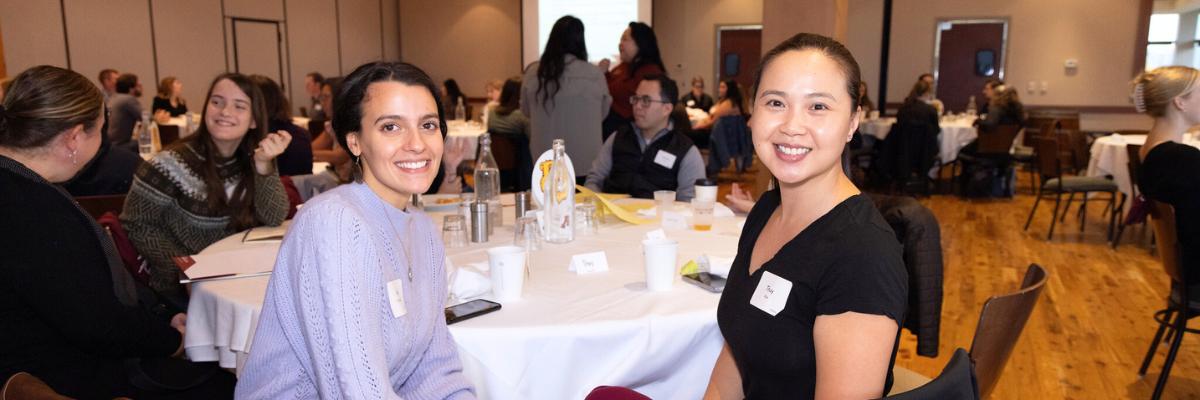Mentor Program

The SPH Mentor Program connects SPH alumni working in the field with current students, to offer career guidance and support. Mentoring relationships benefit both mentors and mentees. For mentees, the program can have a key impact on future career choices and offer the valuable perspective of a professional working on the ground in public health. For mentors, supporting the next generation of public health leaders and scholars offers the opportunity to shape the field of public health and give back to the SPH community. The relationships formed in the mentor program have proven to be enriching and long standing for member pairs.
Becoming a Mentor
Any SPH alumni and public health professionals can become mentors to graduate students at the School of Public Health. Help support an aspiring public health leader with career advice, academic advice, and your experience in the field. Is mentoring right for you? Feel free to contact us at phmentor@umn.edu to ask questions. See basic program details below:
Application is currently closed.
- The Mentor Program runs October through April each year.
- Mentors get to connect with students and share their wisdom, advice, expertise, and guidance to the next generation of public health leaders and scholars. Serving as an SPH Mentor is an opportunity to pay it forward.
- The time commitment is determined by the mentor and student during initial meetings. Most mentor pairs choose to communicate approximately one to three hours per month online, via email, chat, or in-person.
- Mentor from anywhere! Many of our mentees and mentors do not live locally in the Twin Cities. Mentors who live outside of the state of Minnesota, or even outside of the United States, are encouraged to apply.
- Mentors who have recently graduated and have diverse backgrounds are encouraged to apply!
Becoming a Mentee
All undergraduates in the final year of their degree program and graduate students at the School of Public Health are eligible to be paired with a mentor. You will receive support, guidance, and an invaluable relationship with a mentor who has been in your shoes and can help guide you through your time at SPH, and beyond.
Application is currently closed.
- The Mentor Program runs October through April each year.
- Students get to connect with a SPH alumni who can share their experience from their academic career and offer advice.
- Communication with your mentor can be in-person or online. It’s up to you to decide how best to be in touch. The expectation is that mentor pairs communicate at least monthly.
- The program supports participants by matching participants up appropriately.
- Informal mentoring opportunities at SPH include networking events, career panels, symposiums and lectures, and informational interviews.
- You do not need to live locally to participate.
- The mentor program is NOT a job placement program for students. There are no expectations that a job or internship will develop out of this experience.
Mentoring Committee
The Mentoring Committee is a group of SPH alumni who support the school’s annual Mentor Program by providing assistance with the recruitment of mentors and the matching process, as well as providing additional content and support for the program’s participants. Committee members also work on programming that connects alumni and students.
Contact Us
School of Public Health Mentor Program
phmentor@umn.edu
